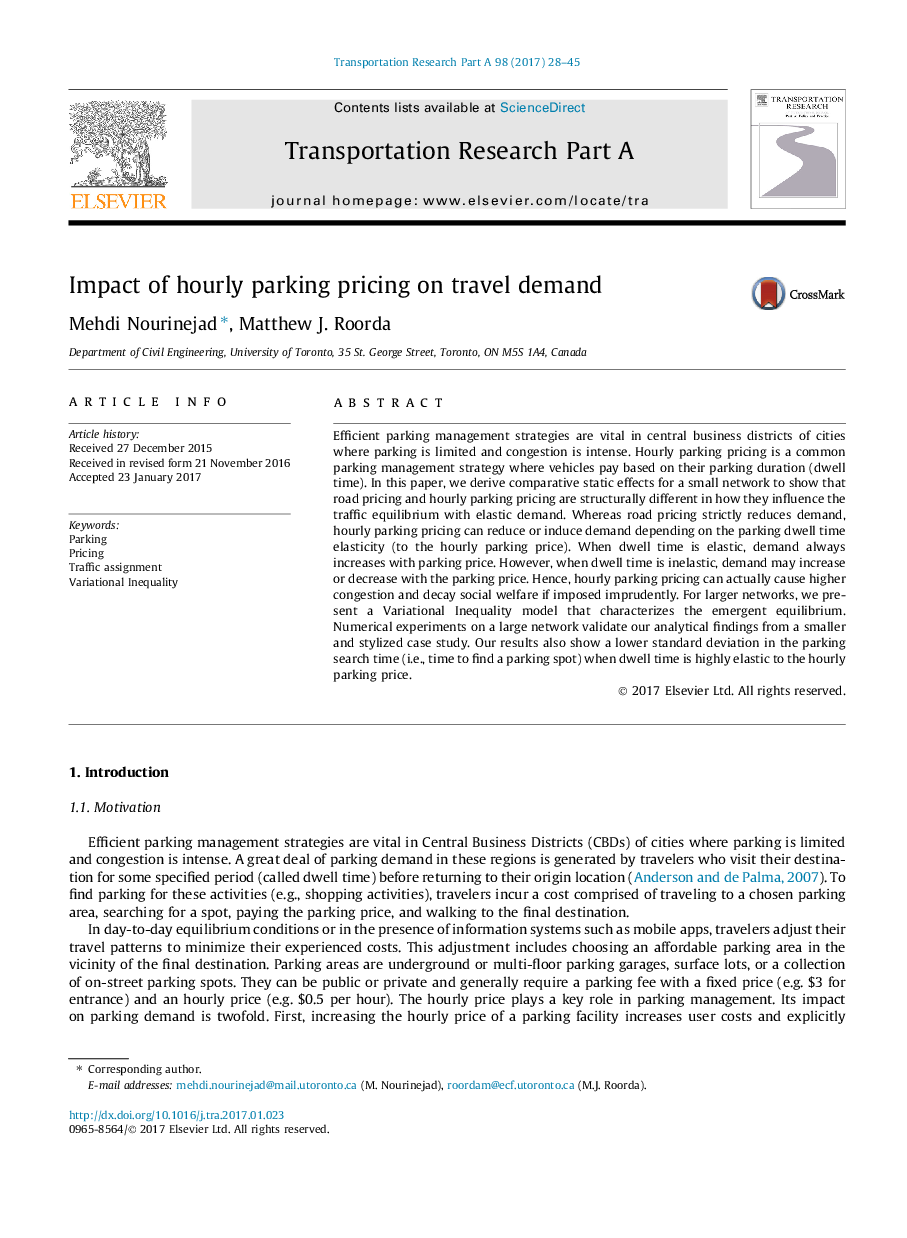| Article ID | Journal | Published Year | Pages | File Type |
|---|---|---|---|---|
| 4929139 | Transportation Research Part A: Policy and Practice | 2017 | 18 Pages |
Abstract
Efficient parking management strategies are vital in central business districts of cities where parking is limited and congestion is intense. Hourly parking pricing is a common parking management strategy where vehicles pay based on their parking duration (dwell time). In this paper, we derive comparative static effects for a small network to show that road pricing and hourly parking pricing are structurally different in how they influence the traffic equilibrium with elastic demand. Whereas road pricing strictly reduces demand, hourly parking pricing can reduce or induce demand depending on the parking dwell time elasticity (to the hourly parking price). When dwell time is elastic, demand always increases with parking price. However, when dwell time is inelastic, demand may increase or decrease with the parking price. Hence, hourly parking pricing can actually cause higher congestion and decay social welfare if imposed imprudently. For larger networks, we present a Variational Inequality model that characterizes the emergent equilibrium. Numerical experiments on a large network validate our analytical findings from a smaller and stylized case study. Our results also show a lower standard deviation in the parking search time (i.e., time to find a parking spot) when dwell time is highly elastic to the hourly parking price.
Related Topics
Physical Sciences and Engineering
Engineering
Civil and Structural Engineering
Authors
Mehdi Nourinejad, Matthew J. Roorda,
